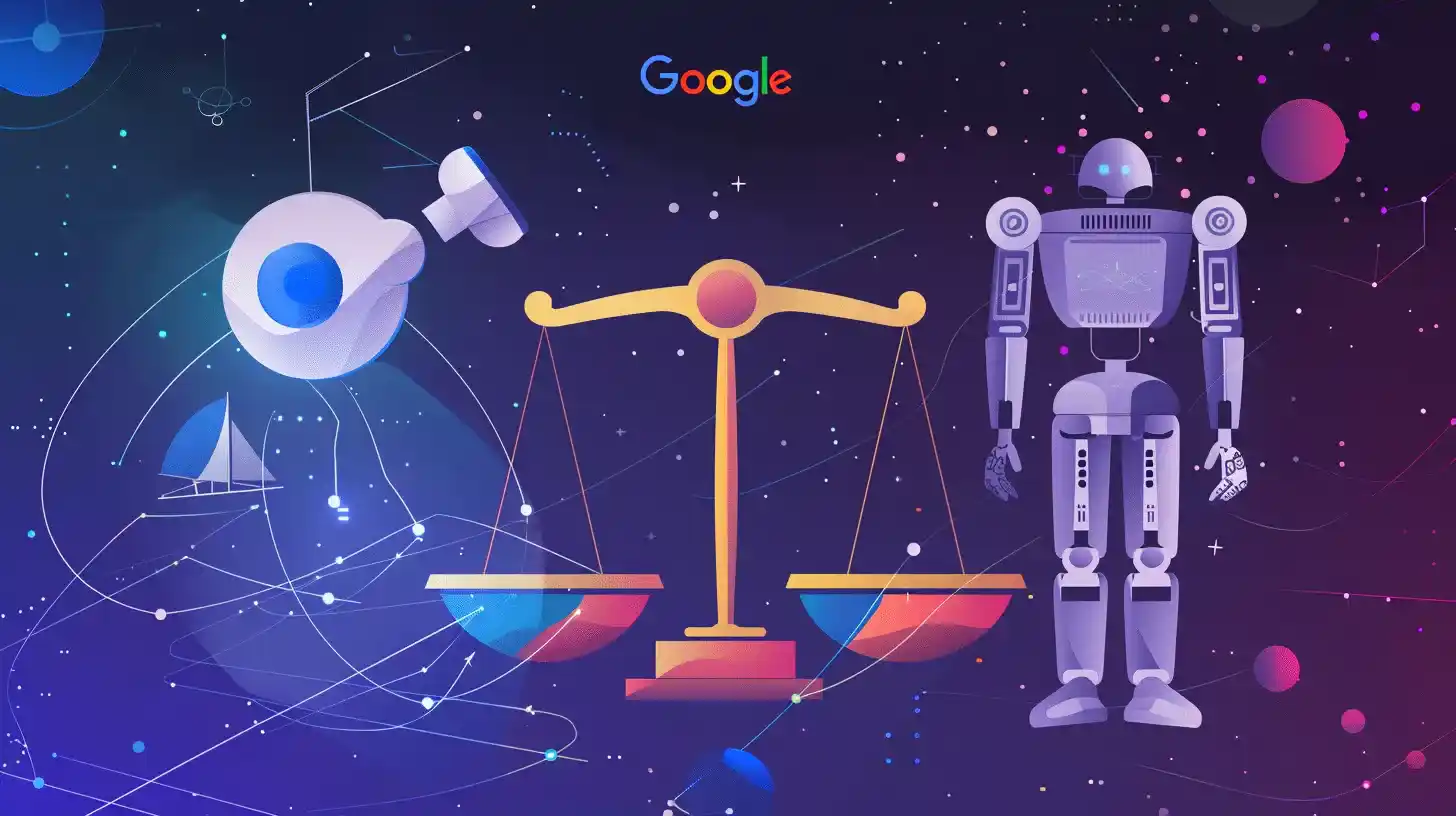Table of Contents
AI vs. Google: The landscape of online search is undergoing a seismic shift as artificial intelligence (AI) begins to challenge the long-standing dominance of Google. With tools like ChatGPT, Google Gemini, and Microsoft Copilot gaining traction, the future of how we find and consume information online is being reshaped.
The Role of AI in Search Evolution AI vs. Google
The rise of companies like Perplexity and You.com heralds a new era of search products, all powered by advanced AI algorithms. Even industry giants like Google and Bing are doubling down on AI as the future of search.
The Multifaceted Nature of Search Queries
Contrary to popular belief, search engines serve a multitude of purposes beyond just retrieving information. From navigating to specific websites to seeking answers to complex questions, the demands placed on search engines are diverse and far-reaching.
Navigational Queries: Seeking Direct Access
For many users, a search engine’s primary function is to provide quick access to desired websites. However, AI-powered search engines often fall short in this regard, struggling to deliver the immediacy and accuracy users expect. Google’s efficiency in serving navigational queries remains unmatched, thanks to its ability to prioritize direct links over additional information.
Information Queries: The Quest for Accuracy
Queries seeking specific information, such as sports scores or historical facts, highlight the varying capabilities of AI-driven search engines. While AI excels in providing contextualized responses, its reliability in delivering real-time data or location-based information often pales in comparison to Google’s precision and speed.
Buried Information Queries: Unearthing Hidden Gems
Certain queries, like “how to screenshot on Mac,” exemplify the challenge of navigating through cluttered search results. AI tools shine in extracting relevant information amidst the noise, offering users a streamlined search experience devoid of unnecessary ads or irrelevant content.

Exploration Queries: Embarking on Learning Journeys
Exploratory queries, characterized by their open-ended nature, present a unique opportunity for AI-driven search engines to excel. By synthesizing comprehensive responses and providing curated links, AI tools offer users a richer learning experience compared to traditional search engines.
The Quest for Speed and Relevance AI vs. Google
Despite the advancements in AI technology, Google maintains a competitive edge due to its unparalleled speed and efficiency. While AI may offer innovative solutions for specific query types, Google’s streamlined interface and vast array of features continue to set it apart as the go-to search engine for millions of users worldwide.
AI vs. Google: Product Innovation vs. Technological Advancement
As the battle between AI vs. Google, the key question lies not only in technological prowess but also in product innovation. While AI holds the promise of revolutionizing search capabilities, Google’s ability to adapt its business model and enhance user experience remains a formidable challenge for its competitors.
In conclusion, while AI-powered search engines represent a significant leap forward in the evolution of online search, Google’s dominance remains unshaken for now. As the quest for the ultimate search experience continues, it’s clear that the future of search will be shaped by a delicate balance of technological advancement and user-centric innovation.
Balancing Innovation and User Experience
The ongoing battle between AI vs. Google the importance of striking a balance between innovation and user experience. While AI holds the potential to revolutionize search capabilities, Google’s entrenched position in the market and its relentless focus on user satisfaction pose significant challenges for newcomers.
The Importance of Context and Relevance
In the quest to surpass Google, AI-powered search engines must prioritize context and relevance. Understanding user intent and delivering tailored results that align with their needs is crucial for gaining traction in an increasingly competitive landscape. Moreover, ensuring the accuracy and timeliness of information remains paramount, particularly for queries requiring real-time data.
Addressing the Need for Speed
One of the critical areas where AI-powered search engines lag behind Google is speed. In today’s fast-paced digital ecosystem, users demand instant access to information without compromising on accuracy. Achieving the right balance between speed and precision will be essential for AI-driven search engines to gain widespread adoption and compete effectively with Google.
Enhancing Transparency and Accountability
As AI algorithms play an increasingly prominent role in shaping search results, ensuring transparency and accountability is imperative. Providing users with visibility into the underlying mechanisms driving search outcomes, including data sources and decision-making processes, fosters trust and confidence in AI-powered platforms. Additionally, adhering to ethical guidelines and standards reinforces the integrity of search results and mitigates the risk of bias or manipulation.

Collaborative Innovation in Search Technology
Rather than viewing AI as a direct competitor to Google, fostering collaboration and knowledge-sharing within the search ecosystem can drive collective innovation. By leveraging the strengths of both AI-driven approaches and traditional search engines, developers and researchers can pioneer new solutions that deliver unparalleled value to users.
Empowering Users with Choice and Control
Ultimately, the future of online search hinges on empowering users with choice and control over their search experience. Whether they prefer the precision AI vs. Google speed or the contextual richness of AI-powered alternatives, offering diverse options ensures that individuals can tailor their search journey to suit their preferences and needs.
Conclusion: Navigating the Evolving Search Landscape
As the boundaries of search technology continue to expand, navigating the evolving landscape requires a nuanced understanding of user expectations, technological capabilities, and market dynamics. While AI-driven search engines hold immense promise for reshaping the way we discover and interact with information online, Google’s entrenched position and unwavering focus on user experience present formidable challenges for newcomers.
AI vs. Google: By prioritizing innovation, transparency, and user empowerment, stakeholders across the search ecosystem can collaboratively chart a course toward a more vibrant, inclusive, and efficient search experience for all.